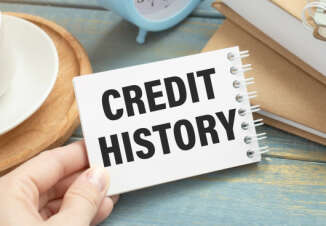The content on this page is accurate as of the posting date; however, some of the offers mentioned may have expired.

In the credit driven economy, no financial deal can take place without first validating the credibility of a person. A person`s Credit history does this specific job. Credit history in essence is a record of a person`s financial activities which is well documented for over a period of time. Every major financial decision like buying a home, buying an automobile or even thinking of applying for a loan requires a good credit history. Having no credit history is almost as bad as having a bad credit history, although there is no debt involved. Credit checks have become a mandatory requirement in most places, and even renting an apartment can turn out to be quite difficult without a credit history.
Building a credit history takes less effort than it seems. It can be thought of as a multiple step process:
Step 1: Applying for a credit card
Credit card is pone way through which credit history can be built in no time. Every single purchase using a credit card is well documented and hence will appear on your credit history. Ironically, even a new credit card application will need a credit check. However, many credit card companies offer credit cards to people without a credit history at a higher cost than those with a credit history. Interest rates will be slightly higher and the annual fee will also be to some extent more. However, once the credit card is obtained, and a good record is maintained, the credit limit can be expanded and even the annual fee can be dropped depending on the credit card company.
Step 2: Maintaining good credit habits
After the credit card is obtained, disciplined spending is very necessary. People, who are new to having credit cards, might need some additional time to understand the workings of credit cards. However, having a monthly budget and sticking to the spending limit helps in regulating the use of credit cards. An upper limit to credit card spending helps in enjoying the benefits of financial freedom, without having to worry about debts later on.
Step 3: Understanding the Credit scores
It is important to know the basics of how the credit history is scored, to avoid any negatives on the credit history. Every financial activity has a score assigned to it in the credit history. Timely payment of balances, payment of monthly installments for purchases and other small loans, and payment of credit card bills in complete have positive scores for your credit report. Missed payments, utilization of the credit card up to the maximum available limit and exceeding the credit limit, late payment of bills or partial bill payments all have negative effects on your credit history. Every individual gets access to a free copy of detailed credit history every year. Making use of this and reviewing the credit history helps a great deal in achieving good credit scores. Verifying credit scores helps in correcting mistakes related to unauthorized entries, errors in entering the data and other such mistakes that can have negative impact on scores.





